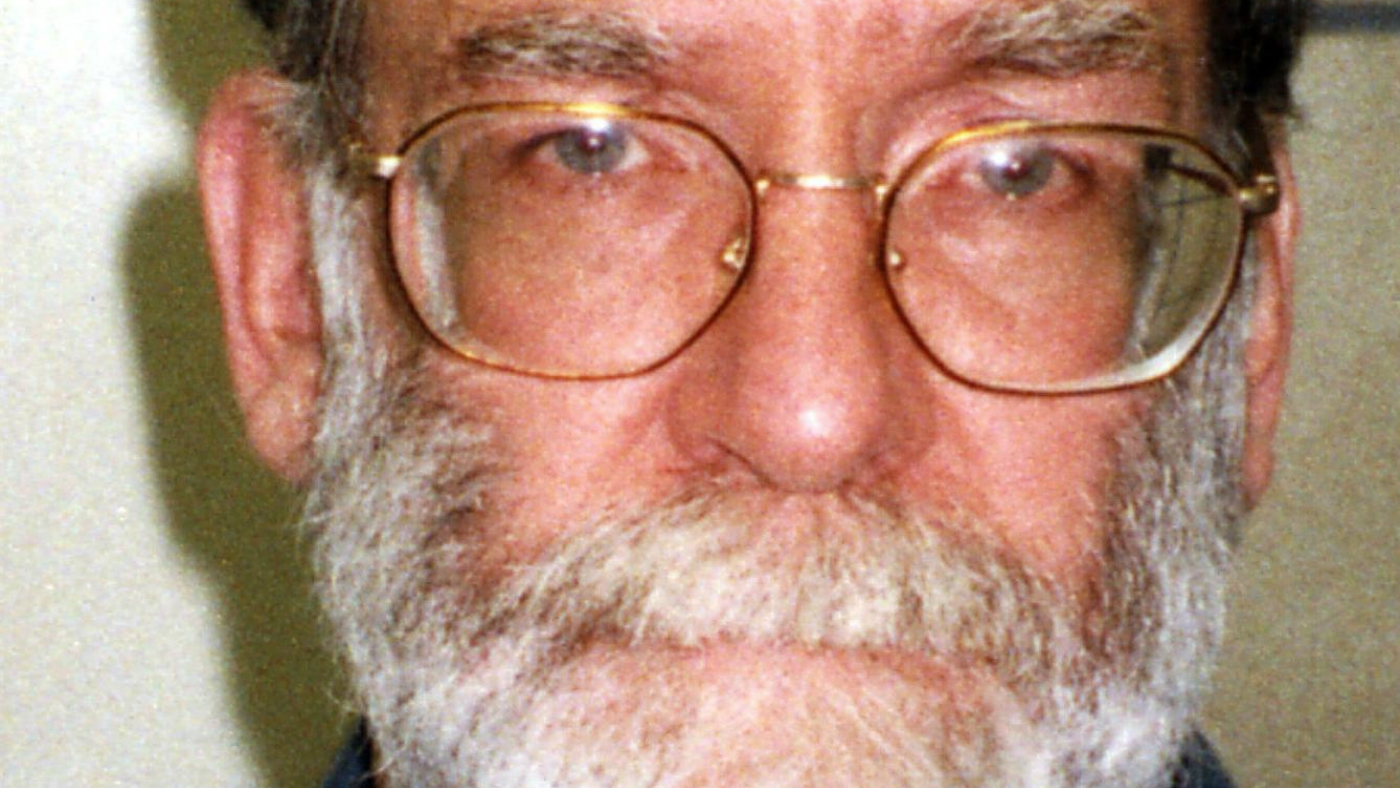Who was Harold Shipman?
Britain’s most prolific serial killer is the subject of a new BBC Four documentary

A free daily email with the biggest news stories of the day – and the best features from TheWeek.com
You are now subscribed
Your newsletter sign-up was successful
Almost two decades have passed since Harold Shipman was convicted of murdering 15 of his patients, but while subsequent investigations have linked a further 260 deaths to the seemingly mild-mannered GP, the man himself remains a mystery.
Britain’s most prolific serial killer murdered scores of elderly people between the 1970s and 1990s by injecting them with diamorphine - the medical name for heroin.
Now, a new BBC Four documentary series, The Harold Shipman Files: A Very British Crime Story, will explore whether attitudes towards the elderly, and respect for doctors, allowed Shipman to get away with his crimes for so long.
The Week
Escape your echo chamber. Get the facts behind the news, plus analysis from multiple perspectives.

Sign up for The Week's Free Newsletters
From our morning news briefing to a weekly Good News Newsletter, get the best of The Week delivered directly to your inbox.
From our morning news briefing to a weekly Good News Newsletter, get the best of The Week delivered directly to your inbox.
The documentary will feature never-before-seen interviews with friends and relatives of some of his victims, reports the BBC.
Filmmaker Chris Wilson says Shipman’s life is “a chilling story about power, authority and an astonishing betrayal of trust.
“One that, for me, remains as pertinent today as it was 20 years ago.”
So who was the man dubbed Doctor Death?
A free daily email with the biggest news stories of the day – and the best features from TheWeek.com
Early life
Born into a working-class family in Nottingham in 1946, Shipman was a clever child who won a place at grammar school, where he was known as a good student and a gifted athlete.
When he was 17, his mother died of lung cancer. The young Shipman tended to her, and developed a fascination with the morphine that eased her pain, says the Encyclopedia Britannica.
He went on to study medicine at university in Leeds, where he met his future wife, Primrose May Oxtoby, on a bus during his first year. They married in 1966, when she was 17 and five months pregnant with the first of their four children.
After graduating in 1970, Shipman started his career at Pontefract General Infirmary, before accepting a position as a GP at Abraham Ormerod Medical Centre in Todmorden, West Yorkshire.
However, he was fired in 1975 after being caught forging prescriptions for a synthetic opioid for his own use. The disgraced doctor was also fined £600 and briefly attended a drug rehabilitation clinic - but avoided being struck off.
Two years later, Shipman was hired as a GP at the Donneybrook Medical Centre in the small town of Hyde, near Manchester, where he stayed until setting up his own nearby Market Street Surgery in 1993. Here, he built up a list of some 3,100 patients.
Shipman’s victims
On 7 September 1998, Shipman was arrested for the murder of 81-year-old Kathleen Grundy, the former mayor of Hyde. Grundy’s daughter had told police she suspected the GP had forged her mother’s will in order to claim her entire estate, worth almost £400,000.
After details of his arrest were made public, more people from across Hyde and Greater Manchester began phoning the police with stories of other patients of Shipman who had died in similar circumstances.
Subsequent investigations would reveal that he had administered massive overdoses of powerful painkillers to hundreds of patients.
On one occasion, he “prescribed and obtained in the name of a dying patient as much as 12,000mg diamorphine… that alone would have been sufficient to kill about 360 people”, according to the Shipman Inquiry, set up by the government to discover the extent of his decades-long killing spree.
Shipman was found guilty of 15 murders by a jury at Preston Crown Court in 2000 and sentenced to life imprisonment. However, the inquiry later put his total number of victims at 215.
The report also identified a further 45 deaths for which he may have been responsible, and an additional 38 where lack of evidence made it impossible to say if Shipman was the culprit.
“Of the 215 [confirmed] killings, one took place in Todmorden, 71 during Shipman’s time at the Donneybrook practice and the remaining 143 during his six years at the Market Street Surgery,” the report says.
“While at the Market Street Surgery, Shipman killed one patient in 1992, 16 patients in 1993 and 11 in 1994. In each of the years 1995 and 1996, he killed 30 patients, increasing to 37 in 1997.
“During the first three months of 1998, he killed 15 patients, after which there was an interval of about seven weeks; he went on to kill a further three patients before his arrest in September 1998.”
Of Shipman’s 215 victims - all of whom have been listed by The Guardian - 171 were women and 44 were men.
What did Shipman say?
Shipman never confessed to any of his crimes. In 2004, he was found hanged in his cell at Wakefield Prison, having refused to admit guilt - even to his wife, who stuck by him through his trial and imprisonment.
Psychologists believe that towards the end of his killing spree, Shipman had felt “an ‘overwhelming need’ to stop and as if he was ‘throwing himself to the gods’”, reports the Manchester Evening News. Many experts think his killing of Grundy and forging of her will may have been a subconscious plea to be caught.
However, it could also have been symptomatic of his murderous arrogance, they say.
One of the most chilling aspects of Shipman’s murders was the lack of motive beyond a desire to kill. Aside from the forging of Grundy’s will, he never attempted to achieve any financial gain from his victims.
“The only valid possible explanation for it is that he simply enjoyed viewing the process of dying and enjoyed the feeling of control over life and death, literally over life and death,” says former south Manchester coroner John Pollard.
-
 Hong Kong jails democracy advocate Jimmy Lai
Hong Kong jails democracy advocate Jimmy LaiSpeed Read The former media tycoon was sentenced to 20 years in prison
-
 Japan’s Takaichi cements power with snap election win
Japan’s Takaichi cements power with snap election winSpeed Read President Donald Trump congratulated the conservative prime minister
-
 Seahawks trounce Patriots in Super Bowl LX
Seahawks trounce Patriots in Super Bowl LXSpeed Read The Seattle Seahawks won their second Super Bowl against the New England Patriots